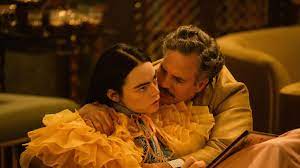My Thoughts on the Communist Manifesto
December 16, 2022
The Communist Manifesto, written in 1848 by Karl Marx and Friedrich Engels, is arguably among the most influential political documents ever written. Outlining a radical restructuring of society based on the tenets of communism, it argues that capitalism has caused widespread inequality and suffering among the working class and calls for a system where all people are equal and share resources equally.
The Communist Manifesto is split into four sections: Bourgeoisie and Proletariat, Proletarian Revolution, Socialist and Communist Literature, and Position of the Communists in Relation to Other Parties. In each section, Marx and Engels outline their views on how society should be organized under a communist system. They argue that private property should be abolished so that everyone can have access to what they need to survive; they also call for an end to oppressive systems like monarchy or religion which prevent people from living freely. Additionally, they suggest that workers should unite together to fight against capitalist exploitation.
One of the main themes throughout The Communist Manifesto is class struggle. Marx argues that there is an inherent conflict between those who own capital (the bourgeoisie) and those who do not (the proletariat). He believed that this conflict would eventually lead to revolution as the proletariat rose against their oppressors. This idea has had far-reaching implications since its publication, inspiring countless revolutions for nearly two centuries.
Overall, The Communist Manifesto is an important document in understanding modern politics and economics. Its arguments still hold relevance today even though it is well over 150 years old; although history has proven its values to be faulty, it is undeniably an essential read to fully grasp contemporary history to its fullest extent.







